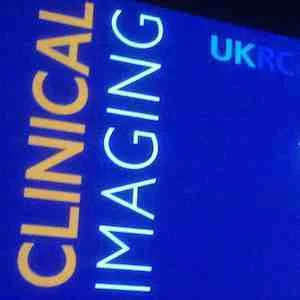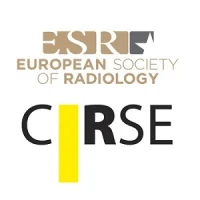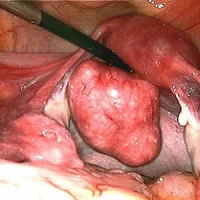Contrast-enhanced spectral mammography is a technique used at the Nottingham City Hospital in the UK, and consultant radiologist Eleanor Cornford summarised their experiences in a talk at UKRC 2015 in Liverpool this week. It has proved easy to use and fits in well to the workflow of their busy new referrals clinic. It has the advantage of providing immediate additional diagnostic information, provides increased confidence in dense breasts and helps focus ultrasound examinations.
Minimally invasive breast cancer treatment was also outlined. A greater role for radiologists is on the horizon, as technology and practice continues to advance.
Steven Allen, Consultant radiologist, Royal Marsden Hospital and special adviser to the National Institute for Health and Clinical Excellence on breast interventional procedures, spoke about percutaneous breast lesion excision. These techniques are one-third of the cost of surgical procedures, and patients experience less pain. They are suitable for lesions under 25mm, he explained. Vacuum biopsy technology and experience is now widely used in the UK, with the caveat that funding may limit fuller usage. The boundaries between radiological biopsy/excision and surgical excision are narrowing especially in the diagnostic setting. Defining a pathway for radiologically guided management of borderline challenges is a challenge, he added. Needle technology continues to advance, and and promises more radiological management of breast lesions. Allen suggest that breast surgeons should be doing more oncoplastic surgery, and leave low risk and borderline malignant breast lesions to interventional breast radiologists.
Ken Gilhuijs, UMC Utrecht, updated delegates on magnetic resonance guided high intensity focused ultrasound (MR-HIFU) treatment of early breast cancer. Currently it is not generally available, and is being practised in academic institutions in collaboration with industry partners. He explained that it shows promise as a technique for breast conserving therapy in suitable patients, with the great advantage of being noninvasive. Giljuihs emphasised that accutate patient selection for MR-HIFU is crucial to avoid positive markings, damage to skin and muscle and safe assessment of the indication for adjuvant systemic therapy. Preoperative core biopsy is accurate to establish positive indication for chemotherapy but less accurate to establish negative indication. Pretreatment multi-parametric MRI may complement biopsy to establish accurate indication for chemotherapy in patients with early breast cancer.
Minimally invasive breast cancer treatment was also outlined. A greater role for radiologists is on the horizon, as technology and practice continues to advance.
Steven Allen, Consultant radiologist, Royal Marsden Hospital and special adviser to the National Institute for Health and Clinical Excellence on breast interventional procedures, spoke about percutaneous breast lesion excision. These techniques are one-third of the cost of surgical procedures, and patients experience less pain. They are suitable for lesions under 25mm, he explained. Vacuum biopsy technology and experience is now widely used in the UK, with the caveat that funding may limit fuller usage. The boundaries between radiological biopsy/excision and surgical excision are narrowing especially in the diagnostic setting. Defining a pathway for radiologically guided management of borderline challenges is a challenge, he added. Needle technology continues to advance, and and promises more radiological management of breast lesions. Allen suggest that breast surgeons should be doing more oncoplastic surgery, and leave low risk and borderline malignant breast lesions to interventional breast radiologists.
Ken Gilhuijs, UMC Utrecht, updated delegates on magnetic resonance guided high intensity focused ultrasound (MR-HIFU) treatment of early breast cancer. Currently it is not generally available, and is being practised in academic institutions in collaboration with industry partners. He explained that it shows promise as a technique for breast conserving therapy in suitable patients, with the great advantage of being noninvasive. Giljuihs emphasised that accutate patient selection for MR-HIFU is crucial to avoid positive markings, damage to skin and muscle and safe assessment of the indication for adjuvant systemic therapy. Preoperative core biopsy is accurate to establish positive indication for chemotherapy but less accurate to establish negative indication. Pretreatment multi-parametric MRI may complement biopsy to establish accurate indication for chemotherapy in patients with early breast cancer.
Latest Articles
UKRC 2015, contrast enhanced spectral mammography, MR-HIFU, interventional radiology
Summary of talks on interventional breast radiology, contrast enhanced spectral mammography and MR-HIFU at the UK Radiological Congress 2015










